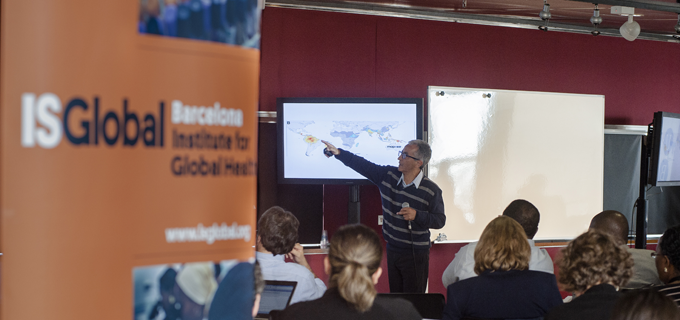International Conference on Plasmodium vivax Malaria Research
Experts from all over the world convene in Barcelona to review the latest information about the most widely distributed and difficult to control malaria parasite
24.05.2013
The Barcelona Institute for Global Health (ISGlobal), in collaboration with the New York Academy of Sciences (NYAS), the "la Caixa", Foundation, and the International Centre for Scientific Debate (B-Debate), present an international scientific conference entitled "Advances in Plasmodium vivax Malaria Research".
Malaria accounts for approximately 250 million clinical cases and nearly 1 million deaths annually—mostly in children—in 109 countries. There is growing evidence that P. vivax is the most widely distributed malaria parasite, accounting for most of the cases of malaria in Latin America and Asia.
"A decade of increased investment in malaria control has resulted in the successful reduction of Plasmodium falciparum malaria in many countries," says keynote speaker Robert D. Newman, director of the Global Malaria Programme at the World Health Organisation. However, "in those countries where P vivax is also transmitted, the balance is being shifted towards this parasite, which is both technically and operationally complex to control and eliminate".
P vivax is difficult to control because of "its ability to relapse from long-lasting dormant liver-stages, months or even years after the first infection," says Ivo Mueller, the organiser of the scientific conference and a research fellow at CRESIB, ISGlobal's research centre. "This makes it more difficult to control and eliminate than P falciparum."
Moreover, Dr Mueller adds, "there are still substantial gaps in our knowledge of key aspects of P vivax biology … and there are very few new tools directly targeting this species".
This 2-day conference will convene a global community of researchers to discuss the molecular biology and genomics of P vivax, host-parasite interactions and novel research techniques for overcoming barriers to the in vitro, in vivo, and clinical study of P vivax (for example, the ‘omics). Other topics of discussion will include drug resistance and drug discovery as well as recent clinical trials and work in the prevention, treatment, control and elimination of P vivax.
"P vivax malaria is one of the most neglected infectious diseases. It is a severe illness and the cause of much misery and morbidity in the endemic areas. The eradication of vivax malaria is a priority goal of global health and the advances that may get us there will be discussed at the meeting," says Alan Magill, Director of the Malaria Global Health Program at the Bill & Melinda Gates Foundation.
"Spain is among the top contributors to research and development for neglected diseases, and the country's role in the fight against malaria, including P vivax malaria, has proven key in advances made against this disease over the last decade," adds Brooke Grindlinger, Executive Director of Scientific Programs at the New York Academy of Sciences. "Spain, and its institutions in academia, government, and industry, is represented by experts at the forefront of basic research, clinical and field trial efforts, science policy, public health, and disease monitoring in many countries affected by malaria. In uniting the local and international research community, we expect that the novel basic and clinical research findings that will be discussed at this conference will inform and stimulate the international scientific research agenda for malaria eradication."
eBriefing
Access a summary of the conference and check out the audio and the presentations of most of the lectures on The New York Academy of Science's eBriefing.



